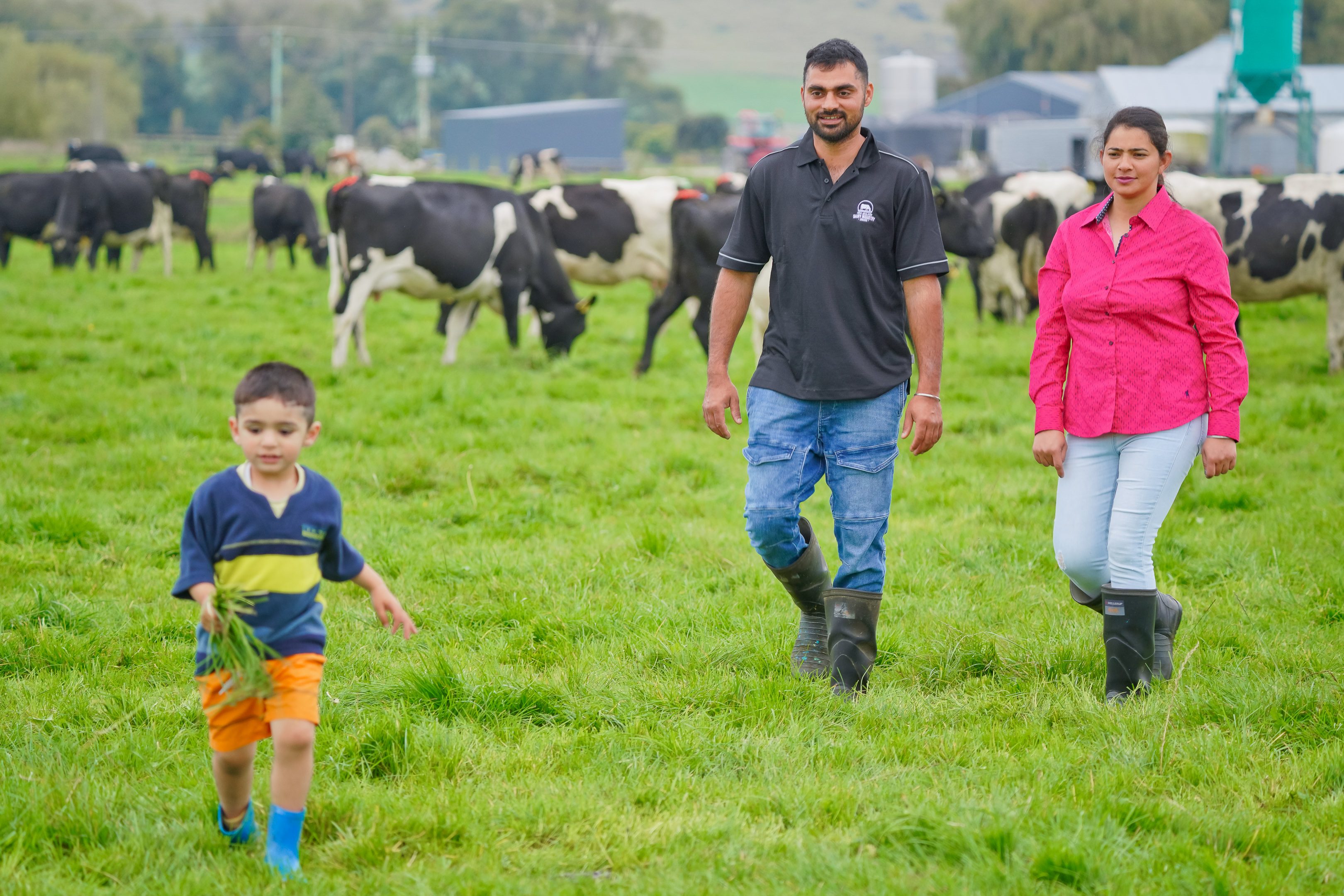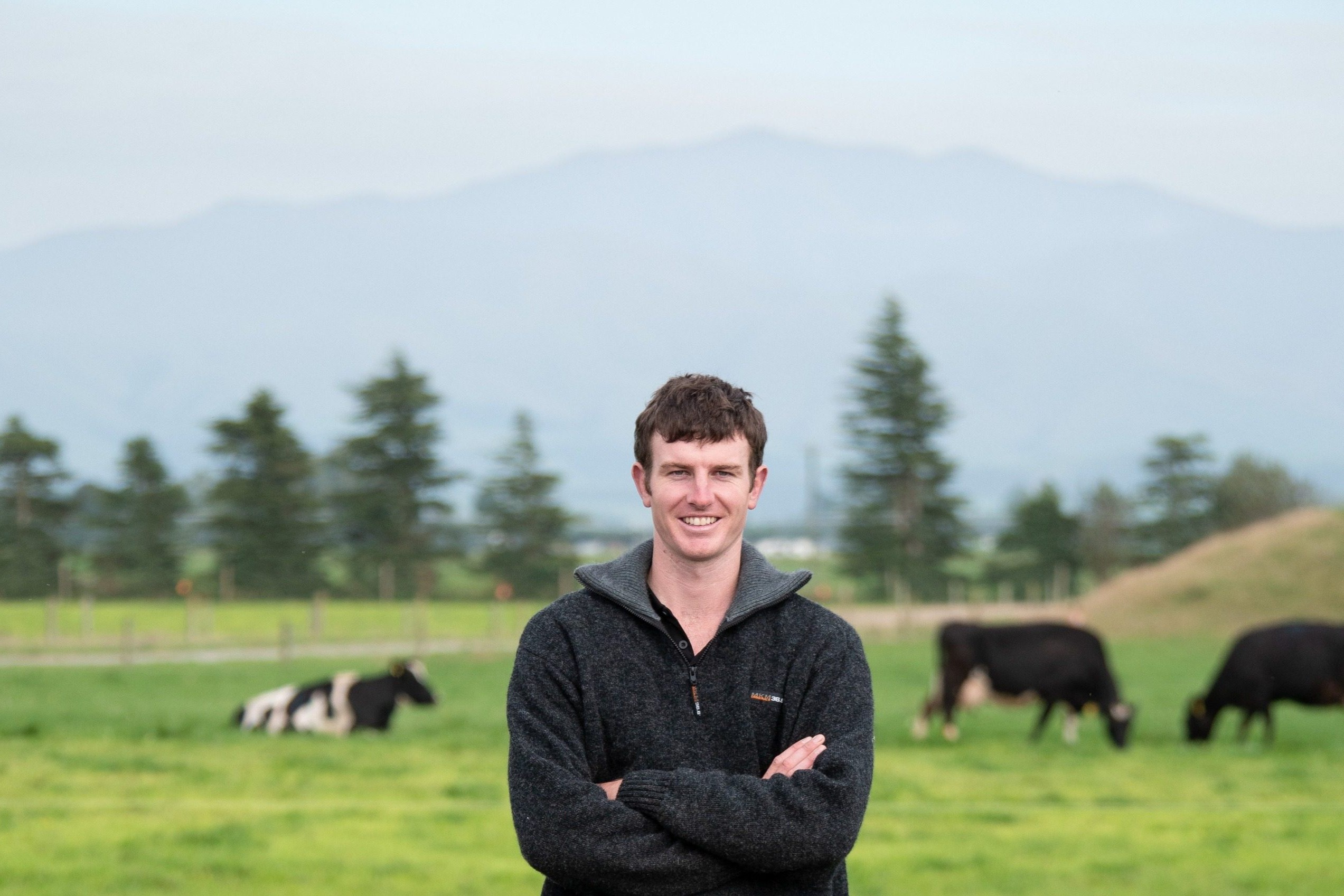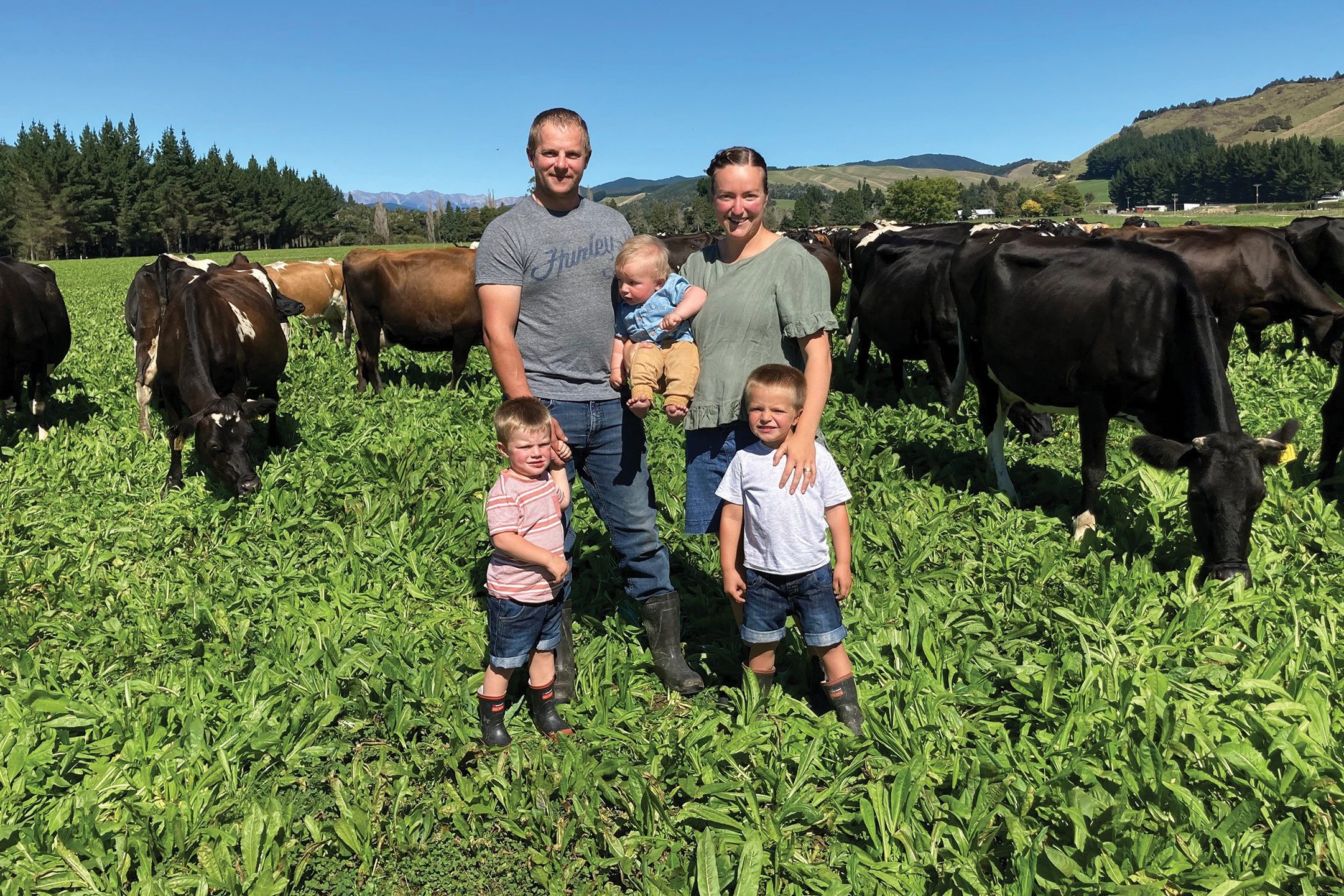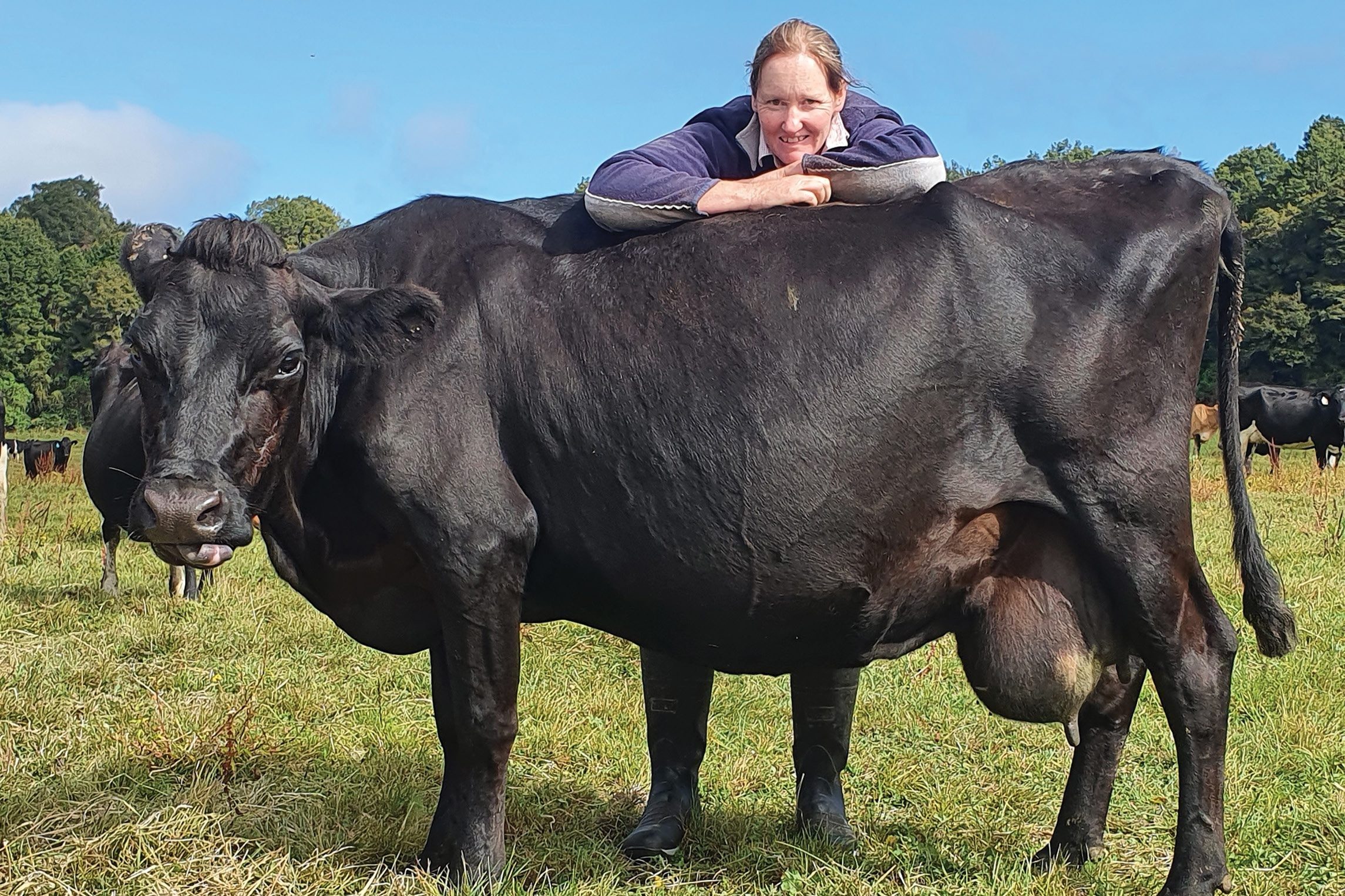By Delwyn Dickey
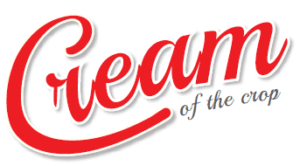 Having just taken out the 2022 Northland Dairy Trainee of the Year award, 18-year-old Macee Latimer, sees dairy farming as her future.
Having just taken out the 2022 Northland Dairy Trainee of the Year award, 18-year-old Macee Latimer, sees dairy farming as her future.
Raised on her parents’ dairy farm at Mangakahia, west of Whangarei, it’s hard to get past Macee’s enthusiasm for dairying at such a young age.
After a long involvement with Young Farmers TeenAg at school, Macee recently joined Whangarei Young Farmers, unfazed at being one of the youngest at meetings. She also completed a Farming A&P Internship course last year, seeing her studying and learning practical level 3 agriculture skills. She hopes to continue this year with the level 4 agriculture studies.
Now employed on a farm on the Wairua River, “just over the hill” from home, working with the stock is where Macee shines, recognising what is good for the animals is often also good for business, like reducing lameness by letting the cows walk at their own pace to and from the milking shed.
But a shift in farming is needed, she says. Higher animal welfare standards, more sustainable practices and lowering greenhouse gas emissions is where dairy farming in New Zealand is heading.
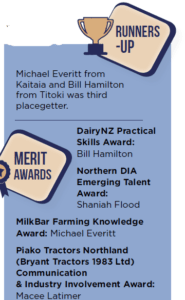 She is frustrated with farmers who don’t treat their stock well, who don’t care about sustainability or the environment.
She is frustrated with farmers who don’t treat their stock well, who don’t care about sustainability or the environment.
“Some farmers shouldn’t be farming,” she says.
Reducing nitrate runoff into waterways with more riparian planting is needed, she says. We need to look at cropping alternatives that will survive the increasing dry and heat as Northland is impacted by climate change more, along with being more water-smart.
She’d like to see trees incorporated into farming more, not just in riparian planting, but also to reduce heat stress in cows.
And while she would love to see zero methane cows she is also frustrated at the costs of being more environmentally minded and at the small number of options available for farm equipment – like electric farm bikes and quads – needed to achieve this lower emissions future.
Better animal welfare, sustainability and the environment will help change the public’s perception of farming, but farmers should take care not to add to the negative views, she feels.
“Don’t put sick cows in paddocks next to the road,” she says, as most people don’t understand that no matter how well you treat your stock, every farm is going to have sick animals.
Macee has always loved the freedom and adventures that came from exploring her parents’ farm with her siblings.
But it is possibly her love of animals that has been behind her decision to look at dairy farming the most. Knowing their behaviour well has seen a strong empathy develop.
She has also tried her hand at hand-rearing hurt birds, had a pet possum as well as a pukeko. Her current menagerie includes Marty, a wild kitten she found on the farm, a boisterous dog Digger – too noisy around stock to work on the farm, and a handful of chickens.
Her collection of very healthy carnivorous house plants should end any notion Macee is a complete softie.


